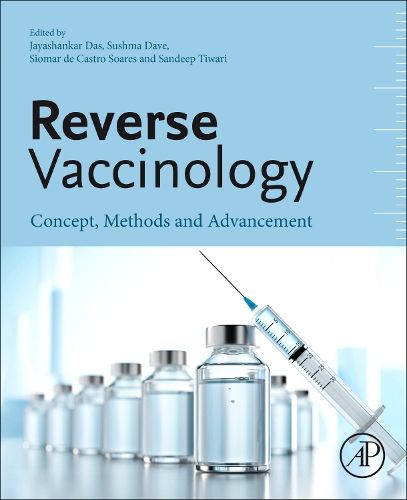Readings Newsletter
Become a Readings Member to make your shopping experience even easier.
Sign in or sign up for free!
You’re not far away from qualifying for FREE standard shipping within Australia
You’ve qualified for FREE standard shipping within Australia
The cart is loading…






Reverse Vaccinology: Concept, Methods, and Advancement presents the development strategy of new vaccines through genome sequencing bioinformatics analysis. This book promises to revolutionize vaccine development, especially for pathogens to which the classical applications of Pasteur's principles have failed, and it is explained in detail in this book.
This book is split into three sections: the first, Concept, brings the basis of reverse vaccinology, vaccine antigen discovery, and subunit vaccine; the second, Tools and Methods, describes immunoinformatic, proteomics for epitope-vaccine design, databases, network analysis, machine learning, and NGS-driven antigen screening technology; and the last one, Disease Case Study, discusses real-world examples in the development of new vaccines for diverse diseases.
It is a valuable resource for bioinformaticians, researchers, students, and members of the biomedical and medical fields who want to learn more about a new and agile process for the development of new vaccines.
$9.00 standard shipping within Australia
FREE standard shipping within Australia for orders over $100.00
Express & International shipping calculated at checkout
Reverse Vaccinology: Concept, Methods, and Advancement presents the development strategy of new vaccines through genome sequencing bioinformatics analysis. This book promises to revolutionize vaccine development, especially for pathogens to which the classical applications of Pasteur's principles have failed, and it is explained in detail in this book.
This book is split into three sections: the first, Concept, brings the basis of reverse vaccinology, vaccine antigen discovery, and subunit vaccine; the second, Tools and Methods, describes immunoinformatic, proteomics for epitope-vaccine design, databases, network analysis, machine learning, and NGS-driven antigen screening technology; and the last one, Disease Case Study, discusses real-world examples in the development of new vaccines for diverse diseases.
It is a valuable resource for bioinformaticians, researchers, students, and members of the biomedical and medical fields who want to learn more about a new and agile process for the development of new vaccines.